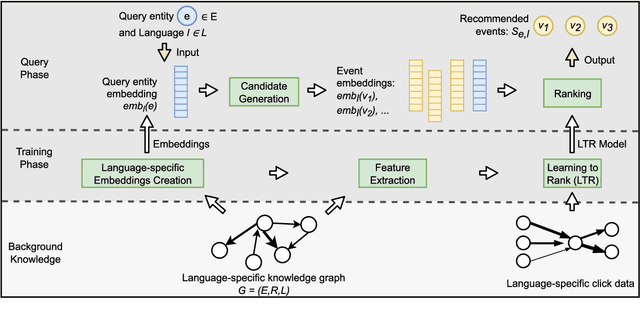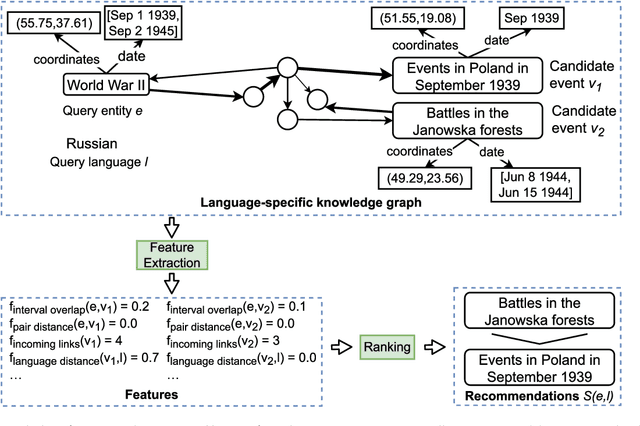Sara Abdollahi
OEKG: The Open Event Knowledge Graph
Feb 28, 2023



Abstract:Accessing and understanding contemporary and historical events of global impact such as the US elections and the Olympic Games is a major prerequisite for cross-lingual event analytics that investigate event causes, perception and consequences across country borders. In this paper, we present the Open Event Knowledge Graph (OEKG), a multilingual, event-centric, temporal knowledge graph composed of seven different data sets from multiple application domains, including question answering, entity recommendation and named entity recognition. These data sets are all integrated through an easy-to-use and robust pipeline and by linking to the event-centric knowledge graph EventKG. We describe their common schema and demonstrate the use of the OEKG at the example of three use cases: type-specific image retrieval, hybrid question answering over knowledge graphs and news articles, as well as language-specific event recommendation. The OEKG and its query endpoint are publicly available.
LaSER: Language-Specific Event Recommendation
Feb 24, 2023



Abstract:While societal events often impact people worldwide, a significant fraction of events has a local focus that primarily affects specific language communities. Examples include national elections, the development of the Coronavirus pandemic in different countries, and local film festivals such as the C\'esar Awards in France and the Moscow International Film Festival in Russia. However, existing entity recommendation approaches do not sufficiently address the language context of recommendation. This article introduces the novel task of language-specific event recommendation, which aims to recommend events relevant to the user query in the language-specific context. This task can support essential information retrieval activities, including web navigation and exploratory search, considering the language context of user information needs. We propose LaSER, a novel approach toward language-specific event recommendation. LaSER blends the language-specific latent representations (embeddings) of entities and events and spatio-temporal event features in a learning to rank model. This model is trained on publicly available Wikipedia Clickstream data. The results of our user study demonstrate that LaSER outperforms state-of-the-art recommendation baselines by up to 33 percentage points in MAP@5 concerning the language-specific relevance of recommended events.
 Add to Chrome
Add to Chrome Add to Firefox
Add to Firefox Add to Edge
Add to Edge